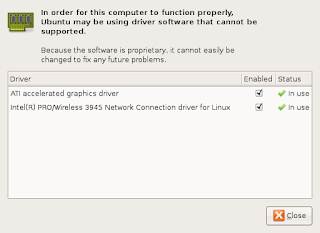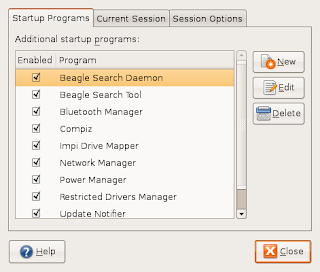I have been doing a lot of research lately and, accidentally, fallen more in line with what I have just termed the Internet Paradigm Super Shift. This is not merely a "Paradigm Shift" it is a massive shift in the way that we deal with our world as we know it today. You will either "get it" and be part of the new information community, or you wont.
Even being a "geek" in the traditional sense will not mean you "get it", and I can speak for myself in this matter. Even recently things like Second Life, Podcasts, Flickr, etc meant very little to me. I knew they were new, very relevant to the Internet Generation and was of the opinion that maybe the fact that I had not grown up with the Internet meant that I would never "get" these concepts. Having spent a lot of time researching new things, trying out new disruptive technologies and services and generally attempting to educate myself I have come to the conclusion that it isn't necessarily relegated to the kids who grew up with the Internet.
Something has really caught my attention though: identity. As you move more and more of your life online you have to make some really hard choices regarding your identity and the value you place on your privacy. A decision also has to be made on how you intend to protect the identity that you choose to go forward with.
Authors have long used aliases when publishing books, for various reasons. Certain individuals prefer to fiercely protect their identities and go to great lengths to protect their privacy. A lot of us just "let it be", we divulge private information to 3rd parties without necessarily knowing much about the 3rd party involved. The last scenario works very much like the proverbial "genie and the bottle" - once the information is out there you have to assume that on some level its going to be accessible to 3rd parties that you might not have wanted to be privy to the information (regardless of what the 3rd party's privacy statement might promise in the form of protection).
With any luck we will never be in a position to attract undue attention from another party and have our privacy badly invaded by the information that is already out there, I'm of the opinion that - at least for me - the benefits of participating in the information community far outweigh the perceived risks of unintended privacy losses.
Protecting your online identityTo me the major concern is that once you let the "genie out of the bottle", that is, embrace the information community and move more and more of your personal life online, you have to protect that identity and reputation as far as possible. What does this mean?
1) Take measures to prevent impersonation in the digital era. You should consistently use proactive and repetitive actions that authenticate what you do online by, for example, signing all your emails, watermarking your digital content.
2) Only divulge personal information to reputable services. Anyone have a good idea how to benchmark this? There's an opportunity for a community driven service to rate a 3rd party's behavior when it comes to protecting their customer's private information.
3) Proactively monitor and protect your identity. Use something like Google Alerts and other tools to police when your identity, or private information is being used online.
Conclusion
The Internet is going to create a paradigm shift roller coaster for a lot of us over the next couple of years. We will do new and old things in ways that we had never imagined. Our privacy and concept thereof will change. Identity, and authentication thereof, will become more and more important every day.
I'm out of prose, so this is where I will end my soliloquy, if anyone has any comments to add please do so through the mechanisms provided by the Blogger service. Can you think of other clever mechanisms whereby to protect your own online identity?
(I'm off to research cryptographic signing of blog posts :-) I'll post my PKI public key as soon as I have one...)








